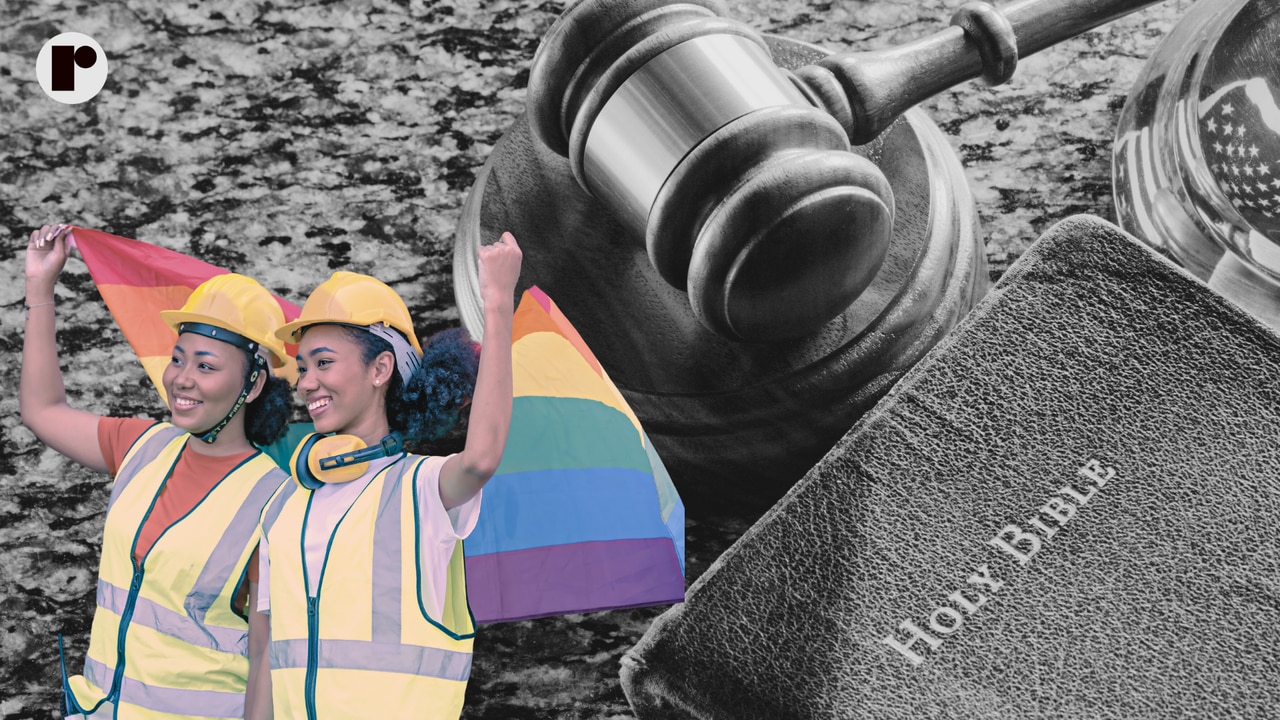Will religious freedom trump LGBTQ+ protections at work? A new federal court ruling says so.
When faced with a choice between enforcing religious sexual guidelines and firing an employee, a federal court said religious employers’ right to enforce their religious principles in their hiring practices was more important than protecting employees from workplace discrimination.
The United States Court of Appeals for the Fifth Circuit, which includes Louisiana, Mississippi and Texas, issued the ruling in late June. The ruling affirmed a lower court’s decision that found the Religious Freedom Restoration Act of 1993 could protect Christian businesses from certain anti-discrimination laws.
This ruling is the first challenge to the Supreme Court’s 2020 interpretation of Title VII, which protects employees from discrimination on the basis of sex, which the Supreme Court said includes sexual orientation and gender identity.
The case was brought by Braidwood Management, a Christian-owned management company, in a class-action lawsuit against the Equal Employment Opportunity Commission.
Braidwood asked the court to clarify Title VII’s prohibitions against sex discrimination, as applied to sexual orientation and gender identity. The company claimed the Title VII requirement violated the First Amendment and the federal Religious Freedom Restoration Act (RFRA).
This case is the first challenge to the Supreme Court’s 2020 ruling in Bostock v. Clayton County, that found Title VII nondiscrimination protections “on the basis of sex” includes sexual orientation and gender identity.
Why is the case important?
This case is significant for LGBTQ+ rights because it establishes a precedent in the Fifth Circuit, which includes Louisiana, Mississippi, and Texas. In those states, employers who have religious objections to the anti-discrimination law may be able to use their religious beliefs as a defense against lawsuits.
It may also impact colleges and universities that have religious objections to the anti-discrimination law, as they can now argue for religious liberty when it comes to enforcing the law.
In other states, this case is not binding precedent, but it could still influence future decisions.
What it did and didn’t do
Here’s how legal firm Husch Blackwell explained the implications of the case.
The Fifth Circuit held that the Christian management company is exempt from Title VII, as interpreted by Bostock, because compliance would substantially burden its ability to operate according to the owner’s religious beliefs. It also declined to find the EEOC’s “generalized interest in prohibiting all forms of sex discrimination in every potential case” to be a sufficiently compelling interest to justify burdening an employer’s religious exercise rights.
This decision did not address whether Title VII prohibits employers from establishing sex-neutral rules of conduct (regarding issues like sex-separated bathrooms, gendered dress codes, and employer policies related to transgender healthcare). It also did not address whether Title VII prohibits discrimination against bisexual individuals.
How has the Supreme Court ruled? It’s complicated.
This case is one of many high federal cases that address religious rules about sexuality and gender and the right to the free practice of religion.
In June, the Supreme Court ruled in favor of a Christian website designer who challenged the state of Colorado’s anti-discrimination law in 303 Creative v Elenis. The court found a Christian web design business could deny services to LGBTQ+ people, making this the second Colorado case to make it all the way to the Supreme Court over legal squabbles over religious freedom and sexual orientation.
One Texas Judge has already used the Supreme Court’s ruling in 303 Creative v Elenis to try to end same-sex marriage. Judge Dianne Hensley cited the case in support of her refusal to perform gay weddings due to her Christian beliefs about sexual orientation.
The composition of the court has changed significantly since the 2017 Supreme Court ruling that sided with a cakeshop that sought the right to deny services to same-sex couples.
Justice Anthony Kennedy, who wrote for the majority in 2018, retired less than a month later. The more conservative Brett Kavanaugh took his place. Two years later, the court’s senior liberal justice, Ruth Bader Ginsburg, died at the age of 87, allowing then-President Donald Trump to appoint another conservative jurist, Amy Coney Barrett, to replace her.
What’s next?
While the ruling did clarify how the Fifth Circuit intends to interpret Title VII, the case leaves employers in murky waters when it comes to what will be the ultimate advice when it comes to religious freedom in hiring practices.
“This decision, even though in fleshing out what Bostock means, leaves so much open that I’m not sure it advances the ball on helping employers understand what the rules of the road are,” Corey Devine, a partner at labor and employment firm Muskat, Mahony & Devine LLP, told Bloomberg Law.
But the ruling allows faith-based companies to challenge Title VII interpretations before they’re enforced, likely emboldening other employers with religious objections to LGBTQ+ rights to go to court, attorneys said.
“I think this makes it easier for more lawsuits to move forward on this issue,” Margo Wolf O’Donnell, co-chair of Benesch Friedlander Coplan & Aronoff LLP’s labor and employment practice, also told Bloomberg Law.
